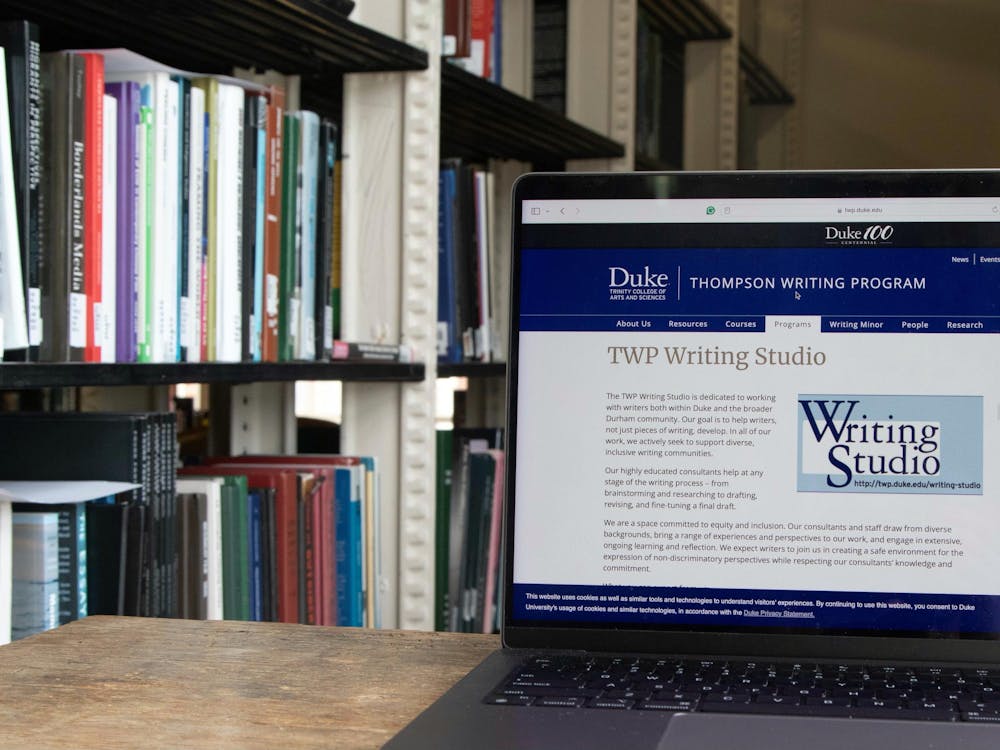The Thompson Writing Program’s writing and rhetoric minor is set to debut in the fall.
Approved by the Arts & Sciences Council in February, the new minor “provides in-depth inquiry and practice in the ethics, habits of mind, promises and complexities of writing and speaking” and “invites students to explore the nuances of communication across rhetorical contexts and media.”
The minor’s requirements include a Writing 101 prerequisite and one core Writing Studies course: Writing 201, History of Writing Studies; Writing 202, Theoretical Frameworks of Writing Studies, or Writing 203, Research Methods in Writing Studies.
To complete the major, students must also complete three writing courses at the 200-level or above and an approved elective outside of the TWP.
Denise Comer, professor of the practice of TWP, and Jessica Corey, assistant professor of the practice of TWP, spearheaded the creation of the minor.
“Thompson Writing Program [can] offer [a] space for providing students the opportunity to really think with some depth, cohesion and longevity,” Comer said.
For Comer, the creation of the new minor is also a product of the current times. She pointed to the advent of generative artificial intelligence and opportunities for different "modalities of writing like visual, aural, prose and digital," as well as the need to communicate across languages and cultures.
The minor is available to students with a wide range of academic and career interests.
“Students interested in public policy can explore public scholarship, they can explore oral communication spaces in which they would really be involved in policy construction and communication,” Corey said. “Students who are interested in engineering could take technical writing.”
First-year Donald Iwejuo, a prospective computer science major, said he is interested in the new minor because he sees value in developing writing skills.
“I feel like many people who are taking writing courses think it's not important because it doesn't relate to their major, but it's gonna help them in the professional setting,” Iwejuo said.
Comer noted that current writing courses don’t all “build or introduce students to the theories and practices of writing studies itself,” explaining why she felt that creating a new minor was preferable to introducing new writing courses.
“We really felt like offering students the opportunity to learn those research methods and theories,” she said. “The history of writing studies is a discipline in and of itself.”
Get The Chronicle straight to your inbox
Signup for our weekly newsletter. Cancel at any time.
Grace Ghoorah is a Trinity first-year and a staff reporter for the news department.

